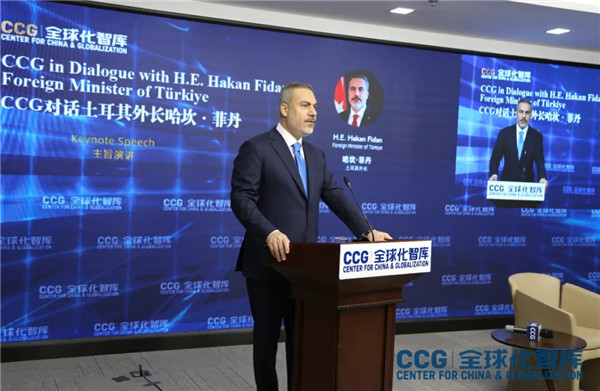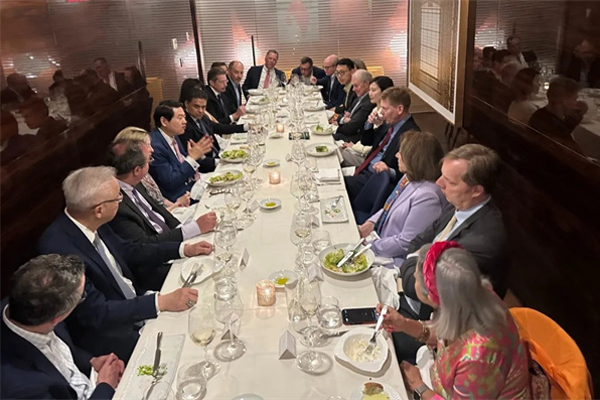More engagement on U.S.-China relations needed – CCG and CGTN set good examples
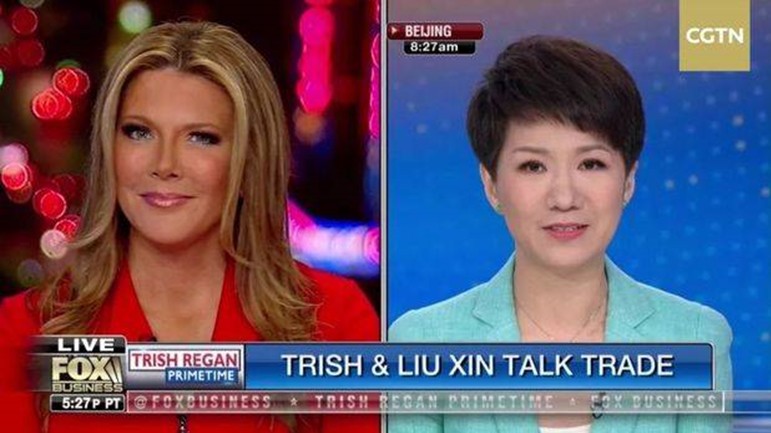
The U.S.-China trade war has erupted over the last few weeks. Following the breakdown in trade deal negotiations, the U.S. initiated tariff increases from 10 to 25% on many Chinese exports, with the Chinese responding in turn, though at reasonable levels. The situation worsened after President Trump signed a national executive order effectively blocking U.S. companies from using communications equipment made by countries deemed a “risk to U.S. national security”, thought to be targeting Chinese tech company Huawei.

In this context people from both the U.S. and China have sought platforms to debate the issues at the heart of the trade war. The Center for China and Globalization (CCG) and China Global Television Network (CGTN) are on the front lines of these conversations recently, as globally-focused Chinese organizations to present a Chinese perspective to the world.
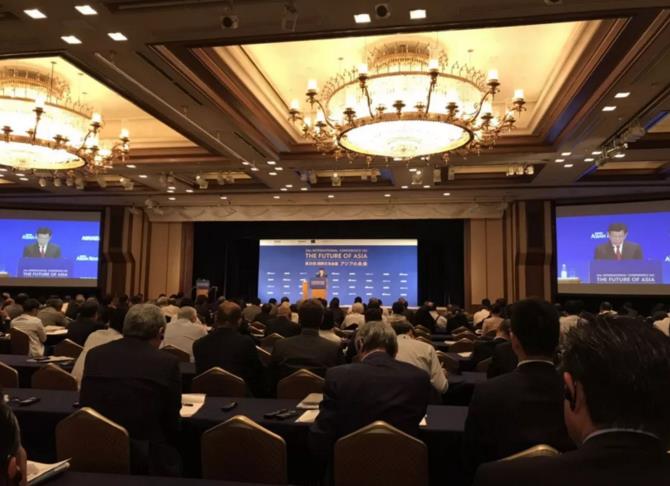
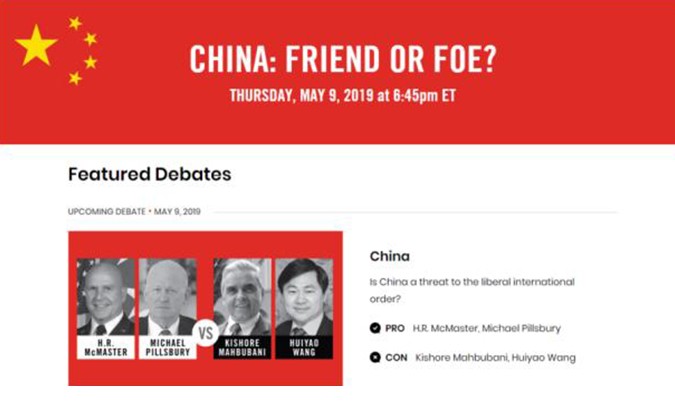
CCG President Wang Huiyao contributed to this trend when he participated in the world-renowned Munk Debates earlier in May, following a series of “track II diplomacy” activities conducted in the U.S.
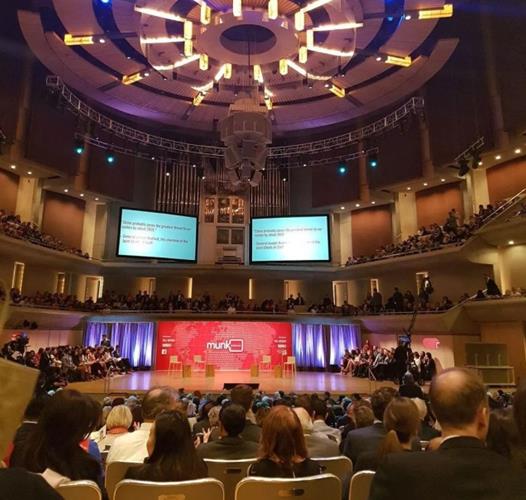
This debate saw speakers battle it out over the resolution: “Is China a threat to the liberal international order?”
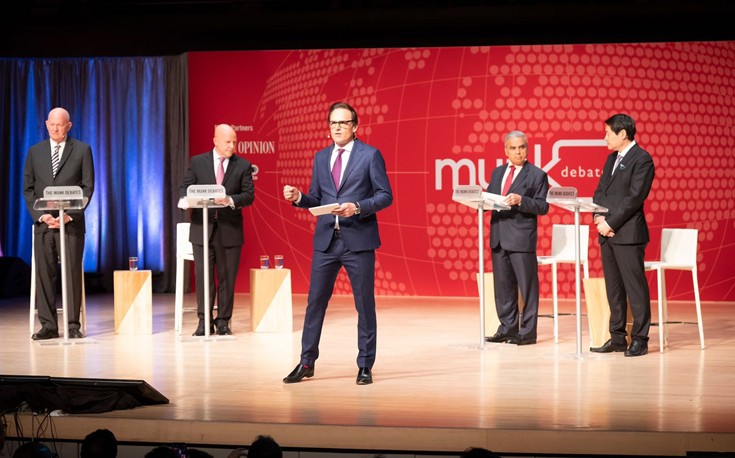
In this debate, Dr. Wang argued China was the biggest benefactor of liberal international order, stating “China, through joining international institutions such as the IMF, WTO and World Bank, has been able to bring 900 million people out of poverty and become the second largest economy in the world.”
Looking ahead to increased Chinese involvement in the world order, Dr. Wang pointed out China’s contributions to the international system, through engagement in the UN, where China is the second largest contributor and largest provider of Peacekeepers on the UN Security Council, as well as highlighting China’s commitment to the Paris Climate Agreement.
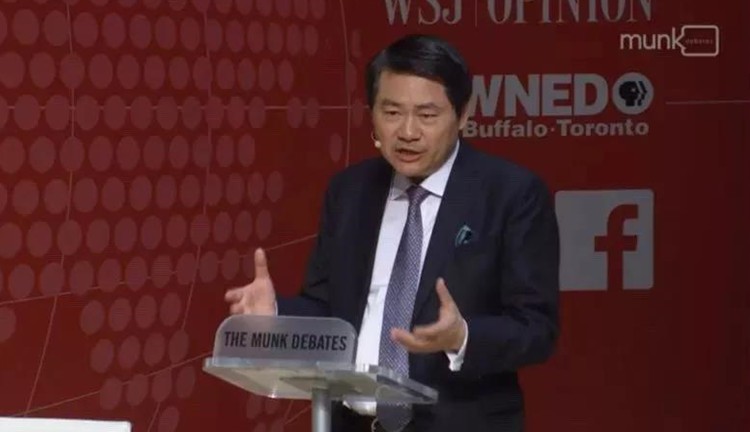
Dr. Wang was joined by Professor Kishore Muhbubani, senior Singaporean diplomat, former President of the United Nations Security Council, and faced off against Michael Pillsbury, director for Chinese Strategy at the Hudson Institute and close adviser to the President Trump on China, and H. R. McMaster, former National Security Adviser to the Trump administration and retired US Army general. This provided the ideal opportunity for a clear and open debate on issues from IPR, U.S. companies operating in China, U.S. protectionism, and political and economic differences between the two powers.
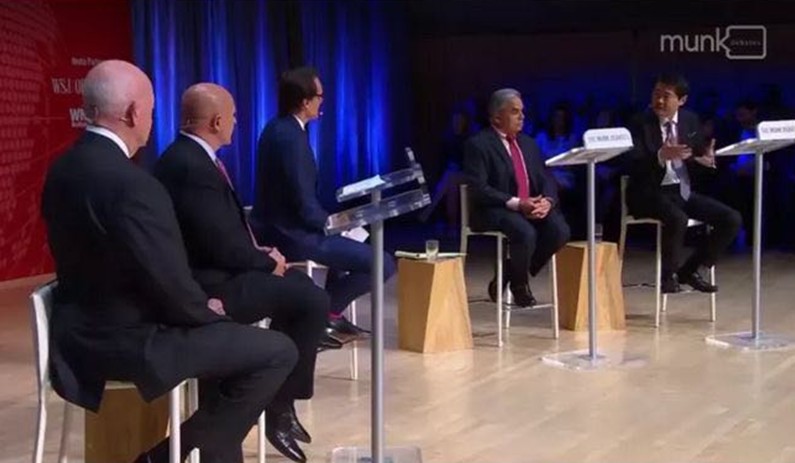
The post-debate audience voting results show Dr. Wang’s side won a narrow victory, with their side of the resolution gaining 2% more audience members to support their position compared with the vote taken before the debate.
This engagement provided a vital chance for the voices from China to discuss the most pressing issues surrounding China’s rise especially with the escalating tensions between China and US. In recent days, rhetoric has heated up on both sides. U.S. officials and pro-Trump media outlets hype-up the trade war. This debate stood out as a productive way of discussing U.S.-China trade relations in an open and civilized manner to the audiences in the west and beyond.
Under this backdrop, CGTN host and journalist, Liu Xin began an online back-and-forth with Fox News presenter Trish Regan earlier this week after pointing out inaccuracies in Fox News’ reporting on the Chinese political and economic system.
After an exchange on the social media platform Twitter, the two leading journalists agreed to hold a live conversation on the key issues impacting U.S.-China trade relations on Regan’s Fox News show.
The conversation began with a rebuttal by Liu Xin as Regan introduced her as a Communist Party of China (CPC) member, Liu Xin stated she was only representing herself as a CGTN journalist and denied her CPC identity. Liu Xin reinforced this point later in the debate, stating broad-reaching statements were not conducive to improving mutual understanding.
Following the rocky start, both sides agreed on the negative impact of a trade war and tariffs. “Trade wars are never good. I wanna believe that something can get done,” Trish Regan said. Liu Xin agreed, but made it clear that unless the U.S. treat the Chinese side with respect then a trade deal will be unlikely.
The polite and civilized conversation continued along this line. When confronted with intellectual property issues in China, Liu Xin noted that IP infringements were not beneficial for any party and stricter supervision was necessary. On China’s status as a developing country and reforms, Trish Regan urged for greater improvements in this area. Liu Xin, again agreed expressing China’s desire to ‘grow up’ but emphasized the realities of the size and scale of China’s economy and its largest population in the world.
Reflecting on the conversation, both presenters came out saying it was a productive exchange, with Liu Xin saying she hoped her words would resonate with U.S. audiences.
The two examples above prove the need for greater debate on issues at the crux of U.S.-China tensions, especially for more diverse Chinese perspectives. Rather than focusing efforts on stoking up tensions, efforts could be better placed in seeking areas where there is potential for enhancing mutual understanding. Productive conversations on matters of critical importance are so badly needed not only for the U.S. and China but the entire world.
CCG and CGTN have set the tone for increasing engagement with their U.S. counterparts and hope more participants from both side will follow suit. And CCG, as a bridge between China and the world, will continue to pursue opportunities to enhance mutual understanding and act as a window to present a Chinese perspective to the world.

